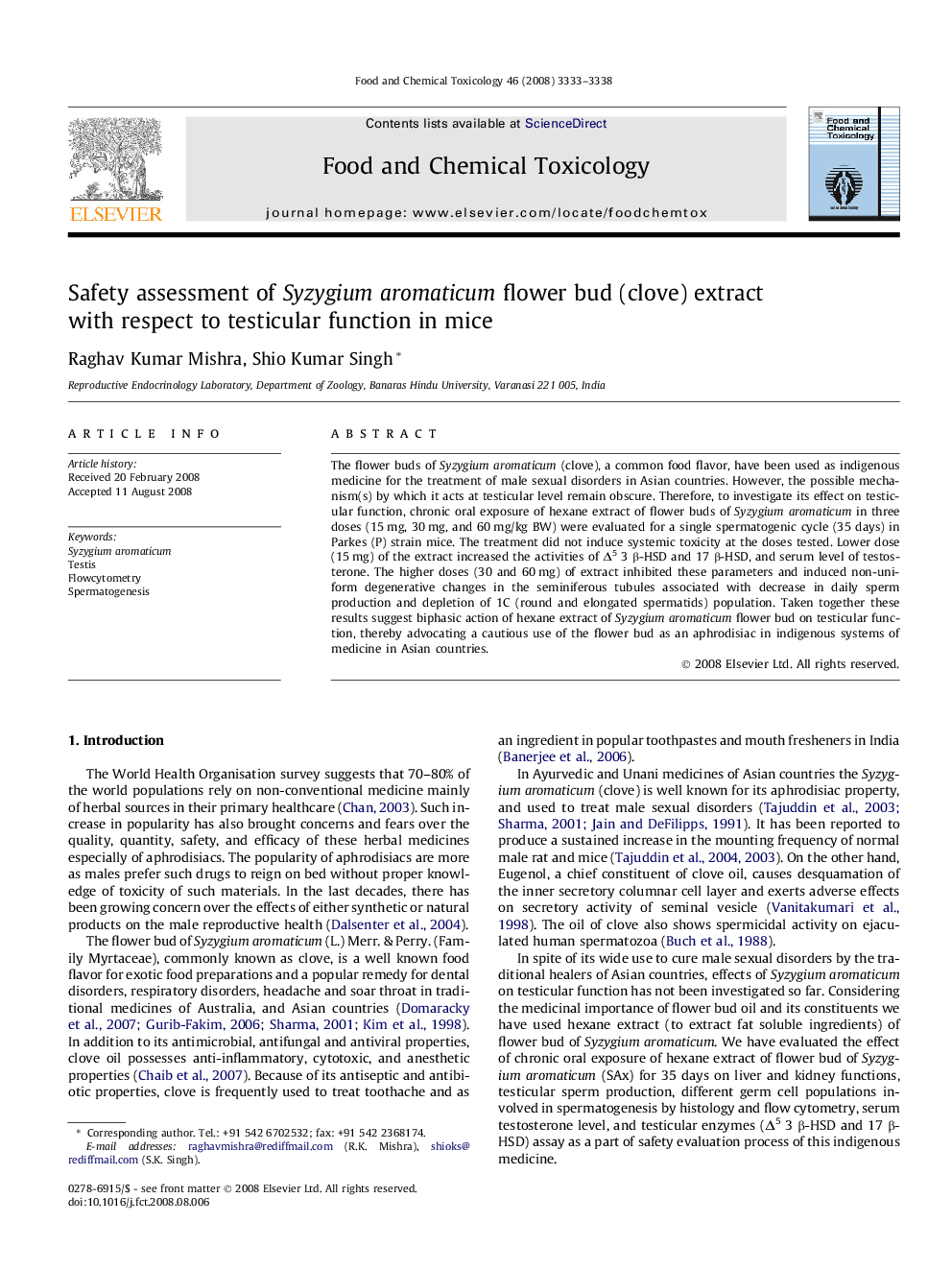| Article ID | Journal | Published Year | Pages | File Type |
|---|---|---|---|---|
| 2587249 | Food and Chemical Toxicology | 2008 | 6 Pages |
The flower buds of Syzygium aromaticum (clove), a common food flavor, have been used as indigenous medicine for the treatment of male sexual disorders in Asian countries. However, the possible mechanism(s) by which it acts at testicular level remain obscure. Therefore, to investigate its effect on testicular function, chronic oral exposure of hexane extract of flower buds of Syzygium aromaticum in three doses (15 mg, 30 mg, and 60 mg/kg BW) were evaluated for a single spermatogenic cycle (35 days) in Parkes (P) strain mice. The treatment did not induce systemic toxicity at the doses tested. Lower dose (15 mg) of the extract increased the activities of Δ5 3 β-HSD and 17 β-HSD, and serum level of testosterone. The higher doses (30 and 60 mg) of extract inhibited these parameters and induced non-uniform degenerative changes in the seminiferous tubules associated with decrease in daily sperm production and depletion of 1C (round and elongated spermatids) population. Taken together these results suggest biphasic action of hexane extract of Syzygium aromaticum flower bud on testicular function, thereby advocating a cautious use of the flower bud as an aphrodisiac in indigenous systems of medicine in Asian countries.
